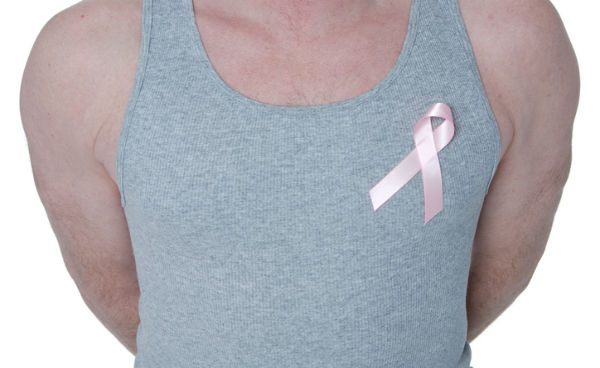
As a health psychologist dedicated to research and clinical efforts to enhance the quality of life and care of those facing cancer, I’ve come to see the many types of support breast cancer patients seek. This work led to my founding the Bronx Oncology Living Daily (BOLD Living) Program in 2008. The program has since grown to encompass counseling, support groups and community cancer education. It’s also led to creation of a wellness workshop program centered on mind-body issues, creative arts, fitness and nutrition, along with peer-support services for patients and families through BOLD Buddies (cancer survivor volunteers) and BOLD Brother/Sister peer mentors (teens and young adults who have cared for parents with cancer).
On a more personal level, this program had its origins in my mother’s breast cancer experience, during which she underwent surgery, chemotherapy and radiotherapy. She was a help-seeker and, fortunately, we lived in New Haven, where an innovative program called Exceptional Cancer Patients offered support groups that included a focus on mind, body and spirit for both of us during that difficult time. Sadly, my mom lost her battle at age 43. Her desire to share her story and to seek out many forms of self-care and complementary medicine inspired me to help others find the comfort and support they need during their cancer journeys.
An Unexpected Breast Cancer Threat
In 2009 another member of my family was diagnosed with breast cancer—my uncle on my father’s side. My uncle’s cancer experience was similar to my mother’s, though he made some quite different choices.
First off, the odds of this happening were really low. In 2018, only about 2,550 men are expected to be diagnosed with the disease. He was, like many men, unaware that men get breast cancer, and it was only several months after finding a cyst that he sought treatment. At age 67 he was diagnosed and underwent a mastectomy, chemotherapy and hormonal therapy, resulting in a host of challenging side effects; he recalls having a very high fever and a dangerous drop in both his white and red blood cell counts, along with other problems. My uncle did not share his experience or participate in cancer-support services.
I recently asked him about his cancer and he said that, like many men with the disease, he knew of no one like himself, and he had moved through the journey without a guide.
Before cancer, he was a gifted flamenco guitarist who enjoyed playing and performing with friends. After cancer, he struggled to regain his facility and endurance. While he didn’t seek help for these issues, he continued to play daily. It was part of his own personal coping program. He’s now well, active and performing his arpeggios with melodic results, if not with ease.
In telling the tale, he was never embarrassed about or ashamed of the disease, saying “It is what it is.”
While he’s sanguine now, he had anxious moments many breast cancer patients can relate to.
The most intense came when a surgeon told my uncle not only that he was going to die from cancer, but that he would not even survive the surgery. My uncle considered using colorful language. Instead, he found another surgeon—one who gave him hope and performed the surgery successfully.
That story makes sense. My uncle is more of a charmer than a fighter—joking and laughing with his chemotherapy nurse. He loves laughter and connection. His attitude means he doesn’t harp on what was, but focuses on living in the moment—even if that means staying up all night playing poker and guitar and, well, just having fun.
These lifelines remain his own personal BOLD Program.
If Breast Cancer Strikes
From my personal experience with my mother and my uncle, as well as from my professional experience, I believe these thoughts and suggestions on self and psychosocial care can benefit anyone affected by breast cancer:
♦ Breast cancer and its treatment can exert a toll on one’s quality of life; both men and women may experience pain, fatigue, nausea, difficulty concentrating, numbness or tingling in hands or feet, changes in sexual interest, menopausal symptoms, scars and body-image distress.
♦ Fears of recurrence and occasional feelings of depression, anxiety and anger are not uncommon. For some people, tinges of shame or embarrassment may color the experience—a man thinking he has a “woman’s disease”; a woman feeling “less feminine or whole” after losing a breast.
♦ Feelings often fluctuate. If they get stuck in a negative place, there are ways to move past them. Formal and informal support is out there for you.
♦ Know yourself and what helps you through the tough times. Like my mother, you may do best sharing the experience with others and finding avenues for active self-care, such as a yoga class, support group, online blog or individual counseling. Like my uncle, you may shy away from talking about your experience but strive to bring normalcy back into your life by maintaining your relationships and activities as much as possible. If that option is not available to you, know that you are not alone and don’t have to suffer. My mother died in comfort through the grace of palliative-care services.
My hope in sharing these stories is that if you or someone you love is diagnosed with breast cancer, you will be ready, informed and educated, so you can create a BOLD path that works for you.
If you want to know more about BOLD or learn how to support the program, please see www.einstein.yu.edu/cancercenter/support

